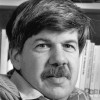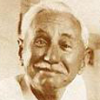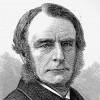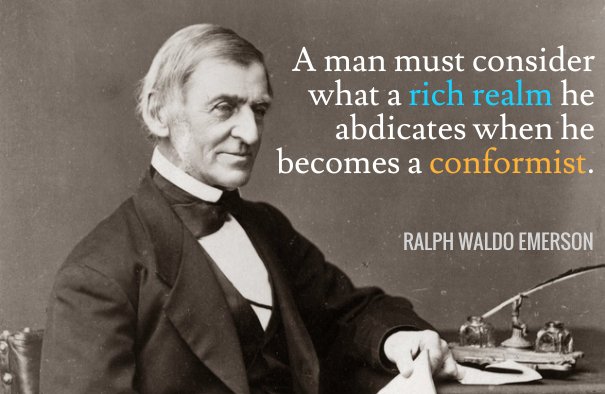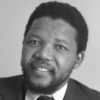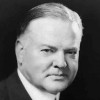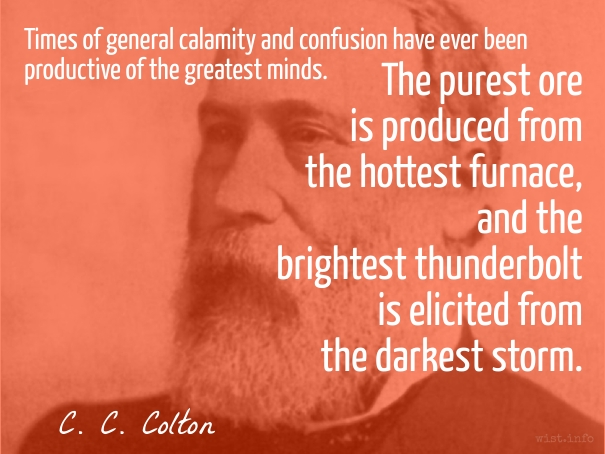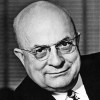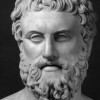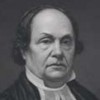Every great mistake has a halfway moment, a split second when it can be recalled and perhaps remedied.
Pearl S. Buck (1892-1973) American writer
What America Means to Me, ch. 10 (1942)
(Source)
Critiquing lack of American policy in Asia, not just to defeat Japan, but to bring freedom to the people of China and India.
Quotations about:
opportunity
Note not all quotations have been tagged, so Search may find additional quotes on this topic.
Early to bed and early to rise, makes a man healthy wealthy and wise.
Benjamin Franklin (1706-1790) American statesman, scientist, philosopher, aphorist
Poor Richard (1735 ed.)
(Source)
For the happiest life, rigorously plan your days, leave your nights open to chance.
Mignon McLaughlin (1913-1983) American journalist and author
The Second Neurotic’s Notebook, ch. 4 (1966)
(Source)
Variant: "For the happiest life, days should be rigorously planned, nights left open to chance."
Elitism is repulsive when based upon external and artificial limitations like race, gender, or social class. Repulsive and utterly false — for that spark of genius is randomly distributed across all cruel barriers of our social prejudice. We therefore must grant access — and encouragement — to everyone; and must be increasingly vigilant, and tirelessly attentive, in providing such opportunities to all children. We will have no justice until this kind of equality can be attained. But if only a small minority respond, and these are our best and brightest of all races, classes, and genders, shall we deny them the pinnacle of their soul’s striving because all their colleagues prefer passivity and flashing lights? Let them lift their eyes to hills of books, and at least a few museums that display the full magic of nature’s variety. What is wrong with this truly democratic form of elitism?
Stephen Jay Gould (1941-2002) American paleontologist, geologist, biologist
Dinosaur in a Haystack: Reflections in Natural History, Part 5, ch. 18 “Cabinet Museums: Alive, Alive, O!” (1995)
(Source)
There are two times in a man’s life when he should not speculate: when he can’t afford it, and when he can.
Mark Twain (1835-1910) American writer [pseud. of Samuel Clemens]
Following the Equator, ch. 56, epigraph (1897)
(Source)
I am, somehow, less interested in the weight and convolutions of Einstein’s brain than in the near certainty that people of equal talent have lived and died in cotton fields and sweatshops.
Stephen Jay Gould (1941-2002) American paleontologist, geologist, biologist
The Panda’s Thumb, Part 4, ch. 13 “Wide Hats and Narrow Minds” (1980)
(Source)
Do not let us speak of darker days: let us speak rather of sterner days. These are not dark days; these are great days — the greatest days our country has ever lived; and we must all thank God that we have been allowed, each of us according to our stations, to play a part in making these days memorable in the history of our race.
Winston Churchill (1874-1965) British statesman and author
Speech, Harrow School, England (1941-10-29)
(Source)
Never turn down the chance of an adventure, unless such chances are coming thick and fast, and maybe not even then.
Mignon McLaughlin (1913-1983) American journalist and author
The Second Neurotic’s Notebook, ch. 4 (1966)
(Source)
Let not these things thy least concern engage;
For though thou fret, they will not mind thy rage.
Him only good and happy we may call
Who rightly useth what doth him befall.
[τοῖς πράγμασιν γὰρ οὐχὶ θυμοῦσθαι χρεών:
μέλει γὰρ αὐτοῖς οὐδέν: ἀλλ᾽ οὑντυγχάνων
τὰ πράγματ᾽ ὀρθῶς ἂν τιθῇ, πράσσει καλῶς]Euripides (485?-406? BC) Greek tragic dramatist
Bellerophon [Βελλεροφῶν], frag. 287 (TGF) (c. 430 BC) [Morgan (1718)]
(Source)
Quoted in Plutarch, "De Tranquilitate Animi [On the Contentedness of the Mind]," sec. 4. (467a). Nauck frag. 287, Barnes frag. 132, Musgrave frag. 24.
(Source (Greek)). Alternate translations:
Nor ought we to be angry at Events;
For they our anger heed not: but the man
Who best to each emergency adapts
His conduct, will assuredly act right.
[tr. Wodhull (1809)]
Events will take their course, it is no good
Our being angry at them; he is happiest
Who wisely turns them to the best account.
[tr. Shilleto (1888), frag. 298]
It does no good to rage at circumstance;
Events will take their course with no regard
For us. but he who makes the best of those
Events he lights upon will not fare ill.
[tr. Helmbold (1939)]
There is no point in getting angry at circumstances. They are uncaring, utterly unconcerned.
But a man who responds to them in the right way, he fares well.
[tr. Stevens (2012)]
One should not get angry with affairs, for they show no concern; but if a man handles affairs correctly as he encounters them, he fares well.
[tr. Collard, Hargreaves, Cropp (1995)]
Many who would not take the last cookie would take the last lifeboat.
Mignon McLaughlin (1913-1983) American journalist and author
The Neurotic’s Notebook, ch. 3 (1963)
(Source)
To build a better world we need to replace the patchwork of lucky breaks and arbitrary advantages that today determine success — the fortunate birth dates and the happy accidents of history — with a society that provides opportunities for all.
Malcolm Gladwell (b. 1963) Anglo-Canadian journalist, author, public speaker
Outliers: The Story of Success, Part 2, ch. 9 (2008)
(Source)
We are so caught in the myths of the best and the brightest and the self-made that we think outliers spring naturally from the earth. We look at the young Bill Gates and marvel that our world allowed that thirteen-year-old to become a fabulously successful entrepreneur. But that’s the wrong lesson. Our world only allowed one thirteen-year-old unlimited access to a time sharing terminal in 1968. If a million teenagers had been given the same opportunity, how many more Microsofts would we have today?
Malcolm Gladwell (b. 1963) Anglo-Canadian journalist, author, public speaker
Outliers: The Story of Success, Part 2, ch. 9 (2008)
(Source)
He that will not when he may,
When he will he shall have nay.Robert Burton (1577-1640) English scholar
Anatomy of Melancholy, Part 3, sec. 2, member 5, subsec. 5 (1621, 2nd ed.)
(Source)
For narcissists, setbacks are not opportunities to learn; they’re problems caused by somebody else who got in their way or sabotaged their plans.
Jeffrey Kluger (b. 1954) American journalist, author
The Narcissist Next Door, ch. 1 (2014)
(Source)
KEATING: Now I would like you to step forward over here and peruse some of the faces from the past. You’ve walked past them many times. I don’t think you’ve really looked at them. They’re not that different from you, are they? Same haircuts. Full of hormones, just like you. Invincible, just like you feel. The world is their oyster. They believe they’re destined for great things, just like many of you. Their eyes are full of hope, just like you.
Did they wait until it was too late to make from their lives even one iota of what they were capable? Because, you see gentlemen, these boys are now fertilizing daffodils. But if you listen real close, you can hear them whisper their legacy to you. Go on, lean in. Listen, you hear it?
Carpe. Carpe diem. Seize the day, boys, make your lives extraordinary.
No doubt about it, solitude is improved by being voluntary.
Barbara Holland (1933-2010) American author
One’s Company: Reflections on Living Alone (1996)
(Source)
All deductions having been made, democracy has done less harm, and more good, than any other form of government. It gave to human existence a zest and camaraderie that outweighed its pitfalls and defects. It gave to thought and science and enterprise the freedom essential to their operation and growth. It broke down the walls of privilege and class, and in each generation it raised up ability from every rank and place.
William James (Will) Durant (1885-1981) American historian, teacher, philosopher
The Lessons of History, ch. 10 (1968) [with Ariel Durant]
(Source)
A great wind is blowing, and that gives you either imagination or a headache.
Catherine II (1762-1796) Russian empress [Catherine the Great; b. Sophie of Anhalt-Zerbst]
Letter to Baron Friedrich von Grimm (29 Apr 1775)
(Source)
In the Collections of the Imperial Society of Russian History, Vol. 23, Catherine the Great, Letters to Grimm, quoted in Gamaliel Bradford, Daughters of Eve (1930).
The very presence of a weapon provokes a man to use it.
[αὐτὸς γὰρ ἐφέλκεται ἄνδρα σίδηρος.]
Homer (fl. 7th-8th C. BC) Greek author
The Odyssey [Ὀδύσσεια], Book 16, l. 294 (16.294) [Odysseus] (c. 700 BC) [tr. Rieu (1946)]
(Source)
(Greek (Source)), repeated in 19.13.
In Book 16, Odysseus offers this as part of the argument Telemachus can use to the suitors to explain why he has stripped the hall of weapons -- that, should the weapons remain, they might tempt drunken people to violence. Book 19, back at the hall, Odysseus repeats almost the same instructions to Telemachus. The same Greek is used for this phrase in both passages; some translators use the same language, others make changes to it.
Epigram (and title inspiration) in Joe Abercrombie's The Blade Itself (2006) -- "The blade itself incites to deeds of violence." Abercrombie was a fan of the Rome: Total War game, which included in its load pages the translation, "The blade itself incites to violence.
BOOK 16, l. 294
- "Steel itself, ready, draws a man to blows." [tr. Chapman (1616)]
- "One drawn sword draws another." [tr. Hobbes (1675), l. 276]
- "Oft ready swords in luckless hour incite / The hand of wrath, and arm it for the fight." [tr. Pope (1725)]
- "For the view / Itself of arms incites to their abuse." [tr. Cowper (1792), l. 348]
- "Steel itself oft lures a man to fight." [tr. Worsley (1861), st. 37]
- "Steel itself wooes men to battle!" [tr. Bigge-Wither (1869)]
- "For the steel blade itself lures men to blood." [tr. Musgrave (1869), l. 462]
- "For iron of itself draws a man thereto." [tr. Butcher/Lang (1879)]
- "For this is said aright, / That e'en of himself the iron draws on a man to smite." [tr. Morris (1887)]
- "Steel itself draws men on." [tr. Palmer (1891)]
- "For the sight of arms sometimes tempts people to use them." [tr. Butler (1898)]
- "For of itself does the iron draw a man to it." [tr. Murray (1919)]
- "Iron of itself tempts man's frailty." [tr. Lawrence (1932)]
- "Tempered iron can magnetize a man." [tr. Fitzgerald (1961)]
- "Iron all of itself works on a man and attracts him." [tr. Lattimore (1965)]
- "For iron of itself can tempt a man." [tr. Mandelbaum (1990)]
- "Iron has powers to draw a man to ruin." [tr. Fagles (1996)]
- "There's a force in iron that lures men on." [tr. D. C. H. Rieu (2002)]
- "For iron itself draws a man to employ it." [tr. Merrill (2002)]
- "Iron of itself draws a man on." [tr. Verity (2016)]
- "Weapons themselves can tempt a man to fight." [tr. Wilson (2017)]
- "For iron of itself attracts a man." [tr. Green (2018)]
- "Iron attracts a man all on its own." [tr. Johnston (2019)]
- "And beckoning, the iron itself drags the man." [Source]
BOOK 19, l. 13 -- items in italics are the same as their Book 16 counterparts.
- "As loadstones draw the steel, so steel draws man." [tr. Chapman (1616)]
- "One drawn sword draws another." [tr. Hobbes (1675)]
- "By sight of swords to fury fired." [tr. Pope (1725)]
- "For the view / Itself of arms incites to their abuse." [tr. Cowper (1792)]
- "Steel itself oft lures a man to fight." [tr. Worsley (1861), st. 2]
- "The sight of iron tempts to use it!" [tr. Bigge-Wither (1869)]
- "For the steel blade itself / Lures men to blood." [tr. Musgrave (1869)]
- "For iron of itself draws a man thereto." [tr. Butcher/Lang (1879)]
- "For e'en of himself the Iron to battle draweth men." [tr. Morris (1887)]
- "Steel itself draws men on." [tr. Palmer (1891)]
- "For the sight of arms sometimes tempts people to use them." [tr. Butler (1898)]
- "For of itself does the iron draw a man towards it." [tr. Murray (1919)]
- "Iron has that attraction for men." [tr. Lawrence (1932)]
- "The very presence of a weapon provokes a man to use it." [tr. Rieu (1946)]
- "Iron itself can draw men's hands." [tr. Fitzgerald (1961)]
- "Iron all of itself works on a man and attracts him." [tr. Lattimore (1965)]
- "For iron of itself can tempt a man." [tr. Mandelbaum (1990)]
- "Iron has powers to draw a man to ruin." [tr. Fagles (1996)]
- "Steel has a way of drawing a man to it." [tr. Lombardo (2000)]
- "There's a force in iron that lures men on." [tr. D. C. H. Rieu (2002)]
- "For iron itself draws a man to employ it." [tr. Merrill (2002)]
- "For iron of itself draws a man on." [tr. Verity (2016)]
- "For iron of itself attracts a man." [tr. Green (2018)]
- "For iron by itself / can draw a man to use it." [tr. Johnston (2019)]
The best break anybody ever gets is in bein’ alive in the first place. An’ you don’t unnerstan’ what a perfect deal it is until you realizes that you ain’t gone be stuck with it forever, either.
There is no such thing as a self-made man. Every businessman has used the vast American infrastructure, which the taxpayers paid for, to make his money. He did not make his money alone.
George Lakoff (b. 1941) American cognitive linguist and philosopher
Don’t Think of an Elephant! (2004)
(Source)
These women were fatuous with a fatuity which had threatened her all her life, as it threatened all people of means, and which was of mournful significance for humanity in general, since it proved the emptiness of one of man’s most reasonable expectations. No more sensible form of government could be imagined than aristocracy. If certain able stocks in the community were able to amass enough wealth to give their descendants beautiful houses to grow up in, the widest opportunities of education, complete economic security, so that they need never be influenced by mercenary considerations, and easy access to any public form of work they chose to undertake — why, then, the community had a race of perfect governors ready made.
Only, as the Lauristons showed, the process worked out wholly different in practice. There came to these selected stocks a deadly, ungrateful complacence, which made them count these opportunities as their achievements, and belittle everybody else’s achievements unless they were similarly confused with opportunities; and which did worse than this, by abolishing all standards from their minds except what they themselves were and did.
I have now but one anxiety left, which is concerning you. I would have you be, what I know nobody is, perfect. As that is impossible, I would have you as near perfection as possible. I know nobody in a fairer way toward it than yourself, if you please. Never were so much pains taken for anybody’s education as for yours; and never had anybody those opportunities of knowledge and improvement which you have had, and still have. I hope, I wish, I doubt, and I fear alternately. This only I am sure of, that you will prove either the greatest pain, or the greatest pleasure of, Yours Always Truly.
Lord Chesterfield (1694-1773) English statesman, wit [Philip Dormer Stanhope]
Letter to his son, #141 (16 Feb 1748)
(Source)
You know what the greatest tragedy is in the whole world? … It’s all the people who never find out what it is they really want to do or what it is they’re really good at. It’s all the sons who become blacksmiths because their fathers were blacksmiths. It’s all the people who could be really fantastic flute players who grow old and die without ever seeing a musical instrument, so they become bad plowmen instead. It’s all the people with talents who never even find out. Maybe they are never even born in a time when it’s even possible to find out. It’s all the people who never get to know what it is that they can really be. It’s all the wasted chances.
Every time it rains, it rains
Pennies from heaven.
Don’t you know each cloud contains
Pennies from heaven?You’ll find your fortune falling
All over town
Be sure that your umbrella
Is upside down.Johnny Burke (1908-1964) American lyricist [John Francis Burke]
“Pennies from Heaven” (1936)
(Source)
I have only just a minute,
Only sixty seconds in it.
Forced upon me,
Can’t refuse it,
Didn’t seek it,
Didn’t choose it
But it’s up to me to use it.
I must suffer if I lose it
Give account if I abuse it
Just a tiny little minute
but eternity is in it.(Other Authors and Sources)
“God’s Minute”
This poem, and variants of it, have a wide trail of misattribution. It was used frequently by Elijah Cummings, US Representative, including during his first floor speech, and is often connected with him. Cummings in turn said it was a favorite of Parren Mitchell, US Representative. It is most correctly attributed in turn to civil right leader Benjamin May, but May claimed it was from an anonymous source. It has also been attributed to Welcome McCullough, history teacher Saugus High School, MA, in the 1940s, though without primary citation that I can find.
The variant used by Cummings:I only have a minute,
Sixty seconds in it,
Forced upon me,
I did not choose it,
But I know that I must use it,
Give account if I abuse it,
Suffer if I lose it.
Only a tiny little minute,
But eternity is in it.
HENRY: This story shall the good man teach his son;
And Crispin Crispian shall ne’er go by
From this day to the ending of the world,
But we in it shall be remember’d, —
We few, we happy few, we band of brothers.
For he to-day that sheds his blood with me,
Shall be my brother; be he ne’er so vile,
This day shall gentle his condition:
And gentlemen in England, now a-bed,
Shall think themselves accurs’d, they were not here,
And hold their manhoods cheap, whiles any speaks,
That fought with us upon Saint Crispin’s day.William Shakespeare (1564-1616) English dramatist and poet
Henry V, Act 4, sc. 3, l. 58ff (4.3.58-69) (1599)
(Source)
The deep, deep peace of the double bed after the hurly-burly of the chaise-longue.
Beatrice Campbell (1865-1940) English actress [Mrs. Patrick Campbell, née Beatrice Stella Tanner]
(Attributed)
(Source)
Describing her recent marriage. Quoted in Alexander Woollcott, "The First Mrs. Tanqueray," While Rome Burns (1934)
From the standpoint of a professional military man there is one good thing about revolutions: the opportunities for swift promotion are excellent . . . even if the pay is inclined to be irregular.
When all the world is young, lad,
And all the trees are green;
And every goose a swan, lad,
And every lass a queen;
Then hey for boot and horse, lad,
And round the world away;
Young blood must have its course, lad,
And every dog his day.Charles Kingsley (1819-1875) English clergyman, historian, essayist, novelist (pseud. "Parson Lot")
“Water Babies,” Song 2, st. 1 (1863)
(Source)
A man must consider what a rich realm he abdicates when he becomes a conformist.
It is through education that the daughter of a peasant can become a doctor, that the son of a mine worker can become the head of the mine, that a child of farm workers can become the president of a great nation. It is what we make out of what we have, not what we are given, that separates one person from another.
In a sense we’ve come to our nation’s capital to cash a check. When the architects of our republic wrote the magnificent words of the Constitution and the Declaration of Independence, they were signing a promissory note to which every American was to fall heir. This note was a promise that all men, yes, black men as well as white men, would be guaranteed the “unalienable Rights” of “Life, Liberty and the pursuit of Happiness.”
It is obvious today that America has defaulted on this promissory note, insofar as her citizens of color are concerned. Instead of honoring this sacred obligation, America has given the Negro people a bad check, a check which has come back marked “insufficient funds.”
But we refuse to believe that the bank of justice is bankrupt. We refuse to believe that there are insufficient funds in the great vaults of opportunity of this nation. And so, we’ve come to cash this check, a check that will give us upon demand the riches of freedom and the security of justice.
Martin Luther King, Jr. (1929-1968) American clergyman, civil rights leader, social activist, preacher
“I Have a Dream,” speech, Washington, DC (1963-08-28)
(Source)
You convey too great a compliment when you say that I have earned the right to the presidential nomination. No man can establish such an obligation upon any part of the American people. My country owes me no debt. It gave me, as it gives every boy and girl, a chance. It gave me schooling, independence of action, opportunity for service and honor. In no other land could a boy from a country village, without inheritance or influential friends, look forward with unbounded hope. My whole life has taught me what America means. I am indebted to my country beyond any human power to repay.
Times of general calamity and confusion have ever been productive of the greatest minds. The purest ore is produced from the hottest furnace, and the brightest thunderbolt is elicited from the darkest storm.
Charles Caleb "C. C." Colton (1780-1832) English cleric, writer, aphorist
Lacon: Or, Many Things in Few Words, Vol. 1, § 28 (1820)
(Source)
Mary, my sweet, carpe that old diem! — it’s the only game in town.
Robert A. Heinlein (1907-1988) American writer
Methuselah’s Children [Lazarus Long] (1958)
See Horace.
Like it or not we live in interesting times. They are times of danger and uncertainty; but they are also more open to the creative energy of men than any other time in history. And everyone here will ultimately be judged — will ultimately judge himself — on the effort he has contributed to building a new world society and the extent to which his ideals and goals have shaped that effort.
Robert Francis Kennedy (1925-1968) American politician
“Day of Affirmation,” address, University of Capetown, South Africa (6 Jun 1966)
(Source)
Life has no other discipline to impose, if we would but realize it, than to accept life unquestioningly. Everything we shut our eyes to, everything we run away from, everything we deny, denigrate, or despise, serves to defeat us in the end. What seems nasty, painful, evil, can become a source of beauty, joy, and strength, if faced with an open mind. Every moment is a golden one for him who has the vision to recognize it as such.
Strategy is the art of making use of time and space. I am less chary of the latter than the former. Space we can recover, lost time never.
Then he smiled, like a cat who had just been entrusted with the keys to a home for wayward but plump canaries.
From everyone who has been given much, much will be demanded; and from the one who has been entrusted with much, much more will be asked.
The Bible (The New Testament) (AD 1st - 2nd C) Christian sacred scripture
Luke 12:48 (NIV)
(Source)
Alt. trans.:
- KJV: "For unto whomsoever much is given, of him shall be much required: and to whom men have committed much, of him they will ask the more."
- GNT: "Much is required from the person to whom much is given; much more is required from the person to whom much more is given."
- NRSV: "From everyone to whom much has been given, much will be required; and from the one to whom much has been entrusted, even more will be demanded."
A person who won’t read has no advantage over one who can’t read.
Mark Twain (1835-1910) American writer [pseud. of Samuel Clemens]
(Spurious)
First attributed to Twain in 1945, but not found in his works. Earliest appearances of the quote date back to 1910, but are unattributed. It's often attributed to Abigail Van Buren (Dear Abby), but she didn't say it until 1966. See here for more information. Variants:
- "Who can see the barely perceptible line between the man who can not read at all and the man who does not read at all? The literate who can, but does not, read, and the illiterate who neither does nor can? [Original form.]
- "The person who does not read has no advantage over the person who cannot read." ["Dear Abby", 19 Oct 1966]
- "The man who doesn't read good books has no advantage over the man who can't read them."




